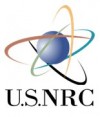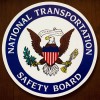The U.S. Nuclear Regulatory Commission (NRC) was created as an independent agency by Congress in 1974 to ensure the safe use of radioactive materials for beneficial civilian purposes while protecting people and the environment. The NRC regulates commercial nuclear power plants and other uses of nuclear materials, such as in nuclear medicine, through licensing, inspection and enforcement of its requirements.
NRC MISSION
The NRC licenses and regulates the Nation’s civilian use of radioactive materials to protect public health and safety, promote the common defense and security, and protect the environment.
NRC’s regulatory mission covers three main areas:
- Reactors – Commercial reactors for generating electric power and research and test reactors used for research, testing, and training
- Materials – Uses of nuclear materials in medical, industrial, and academic settings and facilities that produce nuclear fuel
- Waste – Transportation, storage, and disposal of nuclear materials and waste, and decommissioning of nuclear facilities from service
NRC: Who We Are and What We Do
The Commission as a collegial body formulates policies, develops regulations governing nuclear reactor and nuclear material safety, issues orders to licensees, and adjudicates legal matters.
- Strategic Plan (NUREG-1614)
- Congressional Budget Justification (NUREG-1100)
- Performance and Accountability Report (NUREG-1542)
Atomic Energy Commission (AEC)
Before the NRC was created, nuclear regulation was the responsibility of the AEC, which Congress first established in the Atomic Energy Act of 1946. Eight years later, Congress replaced that law with the Atomic Energy Act of 1954, which for the first time made the development of commercial nuclear power possible. The act assigned the AEC the functions of both encouraging the use of nuclear power and regulating its safety. The AEC’s regulatory programs sought to ensure public health and safety from the hazards of nuclear power without imposing excessive requirements that would inhibit the growth of the industry. This was a difficult goal to achieve, especially in a new industry, and within a short time the AEC’s programs stirred considerable controversy. An increasing number of critics during the 1960s charged that the AEC’s regulations were insufficiently rigorous in several important areas, including radiation protection standards, reactor safety, plant siting, and environmental protection.
AEC to NRC
By 1974, the AEC’s regulatory programs had come under such strong attack that Congress decided to abolish the agency. Supporters and critics of nuclear power agreed that the promotional and regulatory duties of the AEC should be assigned to different agencies. The Energy Reorganization Act of 1974 created the Nuclear Regulatory Commission; it began operations on January 19, 1975. (Watch video: Moments in NRC History: Founding of the NRC)
The NRC (like the AEC before it) focused its attention on several broad issues that were essential to protecting public health and safety.
Values
In achieving our mission, the U.S. Nuclear Regulatory Commission (NRC) adheres to the principles of good regulation — independence, openness, efficiency, clarity, and reliability. The agency puts these principles into practice with effective, realistic, and timely regulatory actions, consistent with our organizational values and our open, collaborative work environment. For additional details, see the following topics on this page:
Principles of Good Regulation
As a responsible regulator with a very important safety and security mission, our values guide us in maintaining certain principles in the way we carry out our regulatory activities. These principles focus us on ensuring safety and security while appropriately balancing the interests of the NRC’s stakeholders, including the public and licensees. The following table briefly describes these principles.
| Independence: | Nothing but the highest possible standards of ethical performance and professionalism should influence regulation. However, independence does not imply isolation. All available facts and opinions must be sought openly from licensees and other interested members of the public. The many and possibly conflicting public interests involved must be considered. Final decisions must be based on objective, unbiased assessments of all information, and must be documented with reasons explicitly stated. |
| Openness: | Nuclear regulation is the public’s business, and it must be transacted publicly and candidly. The public must be informed about and have the opportunity to participate in the regulatory processes as required by law. Open channels of communication must be maintained with Congress, other government agencies, licensees, and the public, as well as with the international nuclear community. |
| Efficiency: | The American taxpayer, the rate-paying consumer, and licensees are all entitled to the best possible management and administration of regulatory activities. The highest technical and managerial competence is required, and must be a constant agency goal. NRC must establish means to evaluate and continually upgrade its regulatory capabilities. Regulatory activities should be consistent with the degree of risk reduction they achieve. Where several effective alternatives are available, the option which minimizes the use of resources should be adopted. Regulatory decisions should be made without undue delay. |
| Clarity: | Regulations should be coherent, logical, and practical. There should be a clear nexus between regulations and agency goals and objectives whether explicitly or implicitly stated. Agency positions should be readily understood and easily applied. |
| Reliability: | Regulations should be based on the best available knowledge from research and operational experience. Systems interactions, technological uncertainties, and the diversity of licensees and regulatory activities must all be taken into account so that risks are maintained at an acceptably low level. Once established, regulation should be perceived to be reliable and not unjustifiably in a state of transition. Regulatory actions should always be fully consistent with written regulations and should be promptly, fairly, and decisively administered so as to lend stability to the nuclear operational and planning processes. |
NRC Organizational Values
In conducting all our work, we at the NRC adhere to the following organizational values. These values guide every action we take — from decisions on safety, security, and environmental issues; to how we perform administrative tasks; to how we interact with our fellow employees and other stakeholders. Our employees share their personal perspectives on the importance of these values in a 9-minute video (Flash/Mobile/HTML5| Windows Media), entitled Living the NRC Values, and the accompanying transcript.
Integrity
…in our working relationships, practices and decisions
…trustworthy, reliable, ethical, unbiased
Service
…to the public, and others who are affected by our work
…responsive, accountable, proactive
Openness
…in communications and decision-making
…transparent, forthright
Commitment
…to public health and safety, security and the environment
…dedicated, diligent, vigilant
Cooperation
…in the planning, management, and performance of agency work
…helpful, sharing, team-oriented, engaged
Excellence
…in our individual and collective actions
…high quality, continuously improving, self-aware
Respect
…for individuals’ diversity, roles, beliefs, viewpoints, and work-life balance
…professional, courteous, objective, compassionate
Open, Collaborative Work Environment
The NRC strives to establish and maintain an open collaborative work environment (OCWE) that encourages all employees and contractors to promptly speak up and share concerns and differing views without fear of negative consequences. An OCWE is a model workplace where diverse views, alternative approaches, critical thinking, collaborative problem solving, unbiased evaluations, and honest feedback are encouraged, recognized, and valued. Trust, respect, and open communication promote a positive work environment that maximizes the potential of all individuals and improves our regulatory decisionmaking.
NRC employees understand that everyone has a role in safety and that we are all responsible for promoting a strong safety culture and achieving our mission.
In reaching this goal, we must collectively act as a team and individually behave as NRC Team Players . In some organizations, being a “team player” means accepting management’s views during the decisionmaking process and not “rocking the boat.” Being an NRC Team Player does not mean those things. NRC holds its employees to a higher standard of involvement and responsibility for the decisions that are made. We expect all our employees “to get in the game” and routinely engage in informal discussions on issues with their coworkers and supervisors.
In addition to informal discussions, which should be sufficient to resolve most issues, individuals have various mechanisms for expressing and having their differing views heard by decision-makers.





